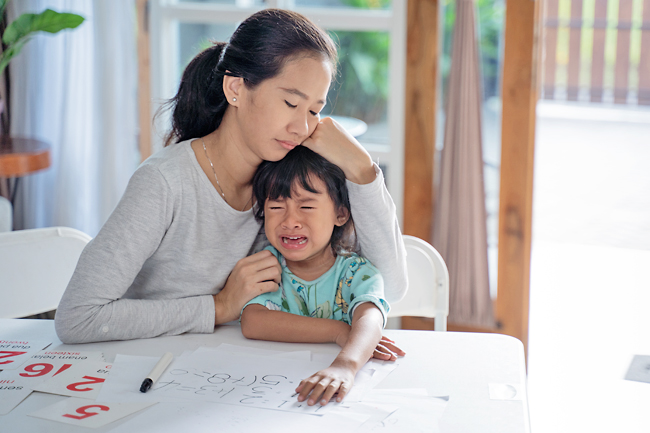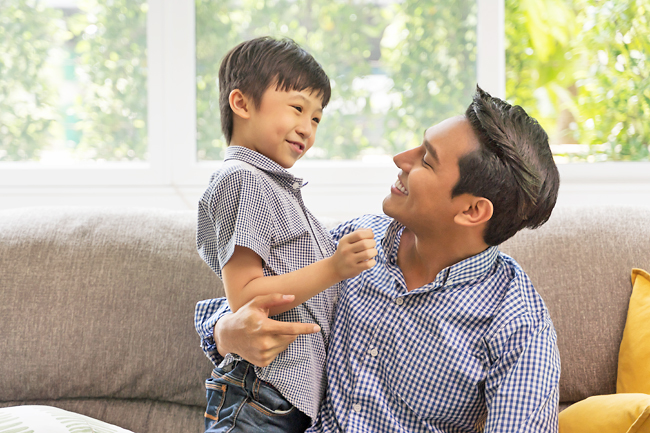ANN/THE STAR – Parents should capitalise on the benefits of having a single child and nurture them to become responsible and resilient individuals, regardless of their ample resources – financial, physical, and emotional – to fulfill their desires and demands.
Although it’s common for parents to indulge their only child’s requests, given the absence of siblings to share attention, others may adopt a more authoritarian approach. With only one child, they may expect unwavering obedience.
Senior marriage and family counsellor Dr Nordinah Mohd Kasim said parents should encourage and help their child fulfil his or her potential, whether it’s academic, music, arts, sports or other pursuits that the child likes.
“Academic achievement is still very much seen as the yardstick of a successful child, and therefore, successful parenting. But I think parents should look deeper and understand their child’s interests instead. They should then use those resources to support the child to achieve his or her full potential,” she added.
“Parents also need to distinguish between what they want and what their child wants. In my work, I still see autocratic parents who don’t allow their child to make choices, like what field to study in university, for example.”



KEEP COMMUNICATION OPEN
Nordinah, who is attached to the International Islamic University Malaysia (IIUM) Counselling and Career Services Centre, said open communication between parents and the child is a must. And if parents do this, they will build a strong connection with their child and help improve their offspring’s mental health and overall well-being.
Her opinion echoes a recent study conducted by the researchers at Ohio State University in the United States (US), who studied the impact of having siblings on teenagers’ mental health.
Published in the Journal of Family Issues, the research, which was carried out on young teenagers in China and in the US, found that only children have the best mental health in China. The same is true for children in the US, although they are less represented in the study.
Lead author Doug Downey, who is also a professor of sociology at Ohio State suggested that this could be due to the complete attention given to the only child.
“If we think of parental resources like a pie, one child means he or she gets all the pie – all the attention and resources of the parents. But when you add more siblings, each child gets fewer resources and attention from the parents, and that may have an impact on their mental health,” Downey suggested.
Another possibility, Downey said, is that the families that have many and few children are different in other ways that may reduce mental health for kids. “In each country, children from families associated with the most socioeconomic advantage had the best mental health.”
DIFFERENT PHASES
Nordinah said different phases of childhood requires different communication approaches. “When children are young, parents should teach them, then guide them; and when children become teenagers, they should listen to their children, without compromising their parental autonomy,” she added.
“Many parents confuse listening to kids with being permissive parents. You can be a good listener and still have boundaries. Listen before you give your parental judgement; and despite what you were told growing up, parents are not always right,” she said.
Parents of only children, she added, typically would want to give everything for their offspring, but she cautions that this excessiveness is detrimental to the child’s well-being.
“Parents need to play their role to balance the child out; he or she might be the only one at home but in a society, he or she has to be part of a group.”
Nordinah, whose youngest client is 10 years old, said parents also need to realise that if they don’t know how to resolve certain issues in the family in relation to their child, they can seek out a counsellor for talk therapy and behaviour modification.
“I have seen only children who are well-adjusted and are able to excel, so personally, whether one has or doesn’t have siblings doesn’t really matter in shaping one’s personality,” she added.
“What is more important is how the person communicates, connects and responds to surroundings and for these, parents need to play their part to inculcate resilience and responsibilities in their only child,” she concluded. – Syida Lizta Amirul Ihsan






